As a former Research Administrator at a Predominantly Undergraduate Institution (PUI), I remember how rare it was to find funding to support our research infrastructure. It was even more rare to find funding for faculty outreach and education (if I had a dollar every time I’ve heard, “Can’t we just use indirect costs for this initiative?”). So when I heard about the new NSF ART (Accelerating Research Translation) Funding Opportunity, I was ecstatic! I attended the recent funding webinar hosted by NSF and I’m thrilled to spread the word and share what I’ve learned about it with you. Keep reading to learn more about expected outcomes, funding information, and key dates!
What is it?
The NSF ART funding opportunity is designed to build capacity and infrastructure for translational research in Institutions of Higher Education (IHEs). NSF wants to effectively train a new generation of graduate students in translational research, with the end result being the expansion of translational research across the United States. The program officers specifically cited numerous times that they want to “…Increase the number of translational research projects pursued at IHEs in all scientific disciplines supported by NSF”…this means your social sciences and education researchers, too! PUIs are typically overlooked for funding like this, so it’s incredibly exciting to hear NSF say that this funding is designed just for PUIs and institutions that don’t already have an established program to promote research outputs! After working with hundreds of institutions worldwide in my almost six years at Cayuse, I can attest that providing students with support and education around translational research is a challenge everywhere. At one institution we work with, approximately 80% of graduate students did not go into academic research, but instead entered for-profit research. This required the school to create a program designed to help expose graduate students and postdocs to the value of commercial applications of their research. I suspect that with similar programs like what NSF is hoping to fund, institutions could see huge growth in their translational research portfolios.
Note: Translational Research in the definition of this solicitation is not solely about making a commercial product or service (commercialization). NSF is defining translational research more broadly now, to include discoveries that can impact other scientific disciplines, policies, specific communities, or society at large. The focus now is on societal impact, not only economic impact!
Translational Research and Tech Transfer
NSF made a point in the webinar to highlight the similarities and differences between how they are defining translational research versus the historical definition of tech transfer. “The ART program adopts an expansive definition of tech transfer that includes, but is not limited to, social entrepreneurship, shared knowledge/platforms, and engaged scholarship.”
|
Translational Research |
Tech Transfer |
| Converting discoveries, often made in a laboratory or other setting, into practical applications that can be deployed at scale | The process by which translational research achieves its impact |
| Can impact other scientific disciplines, policy, specific communities, or society at large | Incorporates an assessment of intended benefits along the social/community dimensions |
| Does not only equate to making a commercial product/service | Does not equate to commercialization only, though many tech transfer offices at IHEs tend to focus primarily on this aspect |
| Focus on societal or economic impact | Typically includes an affirmative requirement to commercialize the innovation |
What are the expected outcomes as a result of this funding?
The primary outcome they are looking for is “…the ability to develop institutional capacity and infrastructure for translational research,” both in the short and long term. This means building in training for graduate students and postdocs trained in translational research, which is outside of typical academic careers. In addition, NSF wants to create and nurture a network of ART Ambassadors who will be instruments of change within their institutions to support equal importance for translational research and its ensuing impact. And here’s the exciting part about these ART Ambassadors: they don’t have to be your typical faculty PIs/Co-PIs (though they can be!). NSF has expanded this definition to also include administration at your institution (VPR, Director of Sponsored Projects, or Community Relations staff for example) and Key External Partners/Collaborators (industry leaders, alumni, or community organization leaders for example). Cayuse fits into the industry leaders category and wants to partner with you! More on that is provided below.
How Can Cayuse Help?
Any collaboration is meant to be a meaningful partnership, and Cayuse would like to be a meaningful collaborator with Institutions of Higher Education to create training and development resources that meet the primary objective of this grant: increasing faculty knowledge and capacity around translational research. Cayuse employs specialists in the areas of translational research and tech transfer, and we’d like to utilize those resources to support you in applying for this opportunity. In addition, Cayuse offers software to support building an infrastructure and culture of tech transfer at your institution. This software is called Cayuse Inventions and is designed to capture outputs from translational research as well as your efforts to promote societal and economic impact on behalf of those outputs (patents, marketing efforts, managing agreements, etc.). How better to track and manage your progress toward the objectives of this grant?
Some questions to ask to determine if you’re a good fit to apply for this funding:
- Do you have high fundamental research activity, but much lower levels of translational research activity (as newly defined by NSF above)?
- Do you produce exciting research outcomes, but you don’t have the infrastructure or capacity to turn those outcomes into discoveries that have a societal or economic impact?
- Do you have goals to increase your tech transfer or commercialization capacity?
- Would you like to be able to promote/advocate/incentivize translational research with equal emphasis that you promote fundamental research across all scientific disciplines but don’t have the resources to train your faculty or build an internal infrastructure to support it?
- Does your leadership want to promote translational research, tech transfer, and social innovation, but you don’t have the resources to support it?
If you answered yes to any of the above questions, your institution is a good candidate for this funding!
Funding Details
- Up to $6M/award, up to 4 years duration
- Roughly 50% of your budget should account for capacity building and training with the rest for supporting translational research projects
- Up to 10 awards/year
- One award per institution across the program’s lifetime
- Each round of awards will support 50+ translational research projects and train 200+ ART Ambassadors across the span of NSF-funded research disciplines
Key Dates
- Application deadline: September 18, 2024
If you have any questions about how Cayuse can help support you in applying for this funding, or if you want to brainstorm if this might be a good fit for your institution, please reach out to me at stef.friesen@cayuse.com! I’m happy to talk through it anytime! Good luck and happy submitting!



